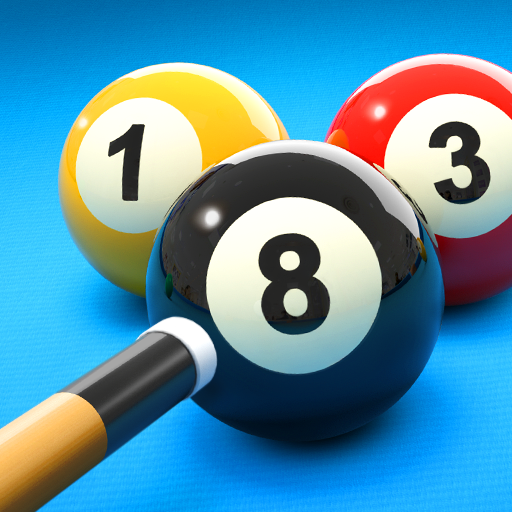Numbers for kid Learn to count - Educational number matching
Embark on a fun math adventure for young learners!

- 1.30.7 Version
- 3.1 Score
- 10M+ Downloads
- In-game purchases License
- 3+ Content Rating
Educational games for children, such as our apps, are currently the favored method of learning. Our apps aim to assist kids with their early education through engaging activities.
"Numbers for Kids - Learn to Count 123 Kids Math Games" is an interactive game that helps children learn numbers by tracing them with their fingers.
This app offers a fun way for kids to learn numbers from 1 to 10, 20, and engage in counting games, making school preparation more enjoyable through digital playtime :)
Embark on an exciting journey as you help save the numbers 123, which have flown away like pieces of a clock in the wind. Explore various locations such as lakes, houses, and even the galaxy to find all the missing numbers!
This game not only teaches children to count up to 10 but also aids in developing memory and fine motor skills through captivating tasks involving tapping and tracing.
Learning can indeed be joyful, and "Numbers for Kids" serves as a valuable tool for mastering counting and arithmetic. These preschool games offer a rewarding and enjoyable learning experience for children!
Key features include:
🤗 Tracing numbers with fingers while washing and soaping them, aiding in easy learning through educational gameplay!
🤗 Enhancing logic and attention through kindergarten learning games, where numbers are hidden in unexpected places, requiring children to find and place them in order from 1 to 20!
🤗 Introducing kids to clocks and time concepts, allowing them to adjust the time on a clock.
🤗 Engaging in a thrilling tutorial with fascinating tasks that help children learn numbers effortlessly and practice writing numbers from zero to nine, fostering mathematical skills.
🤗 Providing imaginative challenges through fairytale-like tasks that take kids on adventures to volcanoes, underwater explorations, witches' houses, and bird's nests, enhancing their creativity.
🤗 Enjoying vibrant figures and colors in kindergarten learning games, ensuring quick mastery of numbers!
New features in this preschool game include:
🍭 Extended counting up to 20!
🍭 Exploring new locations, including space, enabling kids to observe the sun up close!
🍭 Introduction of a new chapter in Mathematics for kids!
Our educational games for both boys and girls cater to kindergarten students:
- designed for 1-year-olds;
- suitable for 2-year-olds;
- perfect for 3-year-olds;
- appropriate for 4-year-olds;
- ideal for 5-year-old toddlers.
Specifically tailored for children aged 2-5 years and older, this math game is enhanced with exceptional animations, colorful graphics, and fully narrated storylines in multiple languages to stimulate cognitive development.
⭐️We value your feedback and would love to hear from you at: support@gokidsmobile.com
How Children Learn to Count
The mathematical brain
It’s first worth considering where our capacity to do mathematics comes from.
Neuropsychologist Brian Butterworth in his book “The Mathematical Brain” suggests we’re born with an innate sense of number hard-wired into our brain and he attributes this to a small region of the brain behind the left ear he calls "the number module". He compares this idea to colour – in the same way we perceive the “greenness” of a leaf we can also perceive the “twoness” or “threeness” of a group of objects.
Take counting. Like times tables and algebra, we tend to think it's something kids have to be taught. Wrong, says Butterworth - it's an instinct. Sure, we have to learn the names and symbols of numbers to develop that instinct, but, because the number module is hardwired into the brain, basic counting comes naturally.
Remote tribes can count even when they have no words for numbers. In maths as in language he believes, "kids start off with little starter kits" And their maths starter kit is the number module.
There are other theories too - such as maths being an extension of our spatial awareness – but there’s something nice in the idea of a “little maths starter kit”.
A Word of warning - All this doesn't mean a child is predestined to be either good at maths or not. Far from it, we’re all born ready to learn maths – and it’s what happens in the first 10 years or so that sets us up.
Counting with toddlers
Research suggest that toddlers - even as young as 12 months - have a sense of how many there are in a set - up to around three objects. This comes from their innate sense of number.
Counting is learned when the toddler starts making the connection between this innate sense of "how many there are" and the language we use to count "one, two, buckle my shoe". This is the first stage in learning maths and it's the building block for many early concepts.
Should parents count with their toddlers? Absolutely, using a variety of real objects. And since counting and language are interlinked reading to your toddlers is equally, if not more, important.
Counting - early learning milestones
Here are some stages of learning to count that you may notice your child going through at ages 3 to 5:
- Recognising how many objects are in a small set without counting. So if you show your child four apples they won't have to count them to tell you there's four.
- Knowing the "number words" from one to ten and their order.
- Know the sequence regardless of which number they start on. So if you say "start counting at four" they will count "four, five . ." as opposed to always counting from one.
- Conservation of quantity - This is where children realise that the number of objects in a set stays the same unless any are added or removed. So if they count six cans of beans in a straight line, then you rearrange the beans ( in front of their eyes ) into say two stacks of three - they will realise there's still six without recounting.
- Counting non-visible objects - your child will realise they can count things they can't touch or even see - such as sounds, members of someone else's family, or even ideas.
- Cardinality, not to be confused with carnality - This is knowing that the last number counted is equal to the quantity of the set. If your child counts six oranges 1,2,3,4,5,6 and then you ask "how many oranges are there"? and they count them again then they haven't grasped "cardinality".
Counting on - as a step towards adding
Learning to add comes as an extension of counting. Here are some stages a child goes through to make this connection:
Counting all - For 3 + 5, children will count "one, two, three" and then "one, two, three, four, five" to establish the quantity of the sets to be added – for example, three fingers on one hand and five fingers on the other. The child will then count all the objects "one, two, three, four, five, six, seven, eight"
Counting on from the first number - Some children come to realise that it is not necessary to count the first number to add. They can start with three, and then count on another five to get the solution. Using finger counting, the child will no longer count out the first set, but start with the word ‘Three’, and then use a hand to count on the second added: ‘Four, five, six, seven, eight’.
Counting on from the larger number - It's more efficient when the smaller of the two numbers is counted. The child now selects the biggest number to start with which is "five", and then counts on "six, seven, eight".
The final stage isn't really counting - it's where learners know their number facts and skip the time-consuming counting altogether.
Number lines are great visual tools for making this connection between "counting on" and addition or subtraction - we use them in Komodo a lot. Here's an earlier blog article all about number lines.
About Numbers for kid Learn to count
Numbers for kid Learn to count is an educational game developed by GoKids! publishing. The APK has been available since November 2018. In the last 30 days, the app was downloaded about 77 thousand times.
It's highly ranked.
It's rated 4.31 out of 5 stars, based on 25 thousand ratings. The last update of the app was on August 27, 2024. Numbers for kid Learn to count has a content rating "Everyone".
Numbers for kid Learn to count has an APK download size of 109.80 MB and the latest version available is 2.0.1. Designed for Android version 5.0+. Numbers for kid Learn to count is FREE to download.
- Version1.30.7
- UpdateSep 18, 2024
- DeveloperGoKids! publishing
- CategoryEducation
- Requires AndroidAndroid 7.0+
- Downloads10M+
- Package Namecom.gokids.livenumbers
- Signature27d4bf47aeb30630eb756772c7f38256
- Available on
- ReportFlag as inappropriate
-
NameSizeDownload
-
118.05 MB
-
117.76 MB
-
105.09 MB




































One of the best interactive
educational and a bit fun
7th level doesn't work
Need to fix way to drag